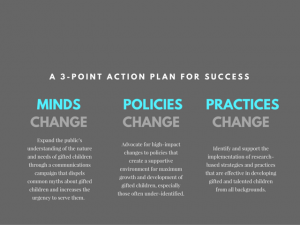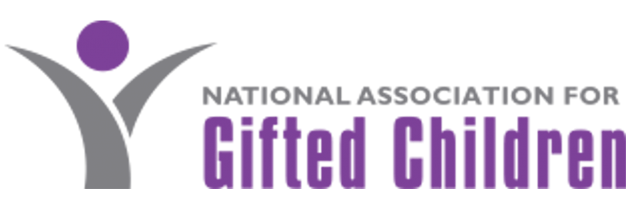NAGC | Change Minds. Change Policies. Change Practice.
 What needs to happen next in the United States and in Minnesota to reach, teach, and support gifted learners? Who is setting direction and leading the charge? What steps should Minnesota parents, caregivers, educators, and community members take?
What needs to happen next in the United States and in Minnesota to reach, teach, and support gifted learners? Who is setting direction and leading the charge? What steps should Minnesota parents, caregivers, educators, and community members take?
M. René Islas, Executive Director for the National Association of Gifted Children (NAGC), was among the keynote speakers at June’s Hormel Foundation Gifted and Talented Symposium, co-sponsored by the Minnesota Department of Education each year in Austin, MN.
His full keynote address is available as a new blog post at the NAGC website. We provide a condensed version below, calling out remarks that highlight his main points. Islas issued a call to action in three areas:
- Change Minds
- Change Policies
- Change Practices
MCGT is the state affiliate of NAGC, so this also serves as a call to action in Minnesota. Now is the time to join MCGT and be part of this chapter‘s efforts on behalf of St. Croix Valley students.
Change Minds
The first goal is to expand the public’s understanding of the nature and needs of gifted and talented children, to dispel common myths, and to increase the public’s urgency to serve them. …
We must saturate the public consciousness with the notion that all children deserve to be happy, fulfilled, and successful. This will be tough, and we must be open to trying new things. NAGC has been working for over 60 years to advance our movement for gifted children. We have had great traction. We have racked up some important victories. But we must go further!
 Most recently, together we were successful in impacting the federal education law to allow public schools and districts to leverage Title I funds to support gifted and talented children. The law went further to require explanations from states as to how education systems will support teacher professional development so that they can support gifted students to achieve their full potential. …
Most recently, together we were successful in impacting the federal education law to allow public schools and districts to leverage Title I funds to support gifted and talented children. The law went further to require explanations from states as to how education systems will support teacher professional development so that they can support gifted students to achieve their full potential. …
Del Siegle and his fellow research colleagues at the National Research Center on Gifted Education found recently that it is virtually impossible for a student who is in poverty, is an English learner, and is from a minority group to be identified and served in a gifted and talented program. All of us believe that education is a great equalizer. We know that giftedness exists in all populations and that families, teachers, and the community have a moral obligation to help children that start from disadvantaged backgrounds to grow, develop, and flourish.
Change Policies
Changing Minds is a long term effort. We will always need to increase understanding about the nature and needs of gifted children. Our efforts will help us achieve tangible changes in society.
At NAGC we believe in the power of policy to create supportive environments for learning. … As we look at the policy and practice landscape, we see a need to leverage the recent opportunities created in federal law. We will support local practitioners to utilize the law, and we will continue to shape a supportive policy environment for gifted education. …
A more immediate opportunity exists — Affecting state and local policy. This is where the real action and opportunity exists that will make the greatest change for gifted students. NAGC is working to develop the infrastructure to support a targeted set of states to make specific changes to state policy.
 We are in the early development stages of this initiative. While every state and locality is different, we believe there is an opportunity to find states with common gaps and provide materials and supports to fill those policy gaps that will make a difference for gifted children.
We are in the early development stages of this initiative. While every state and locality is different, we believe there is an opportunity to find states with common gaps and provide materials and supports to fill those policy gaps that will make a difference for gifted children.
Change Practice
We now have reached the third goal of NAGC’s advocacy — Changing Practice. With this goal, we can learn from the environmental movement. Environmentalists used the power of messaging to change minds, and they leveraged policy to create supportive environments. But they also knew that they could inspire change immediately.
Environmentalists understand that behavior cements culture. They tapped into natural human tendency to make habits. They know, if we can help people routinely implement certain actions or practices, these practices would become sticky habits. You know how hard it is to break a habit. …
In a similar manner, we can tap into the power of human nature and create positive habits for supporting the needs of gifted children. Like the policy ideas, these are only a preliminary list of practice for consideration. These were listed because of the research supporting their positive impact on students, but there are more examples and we will discover others.


